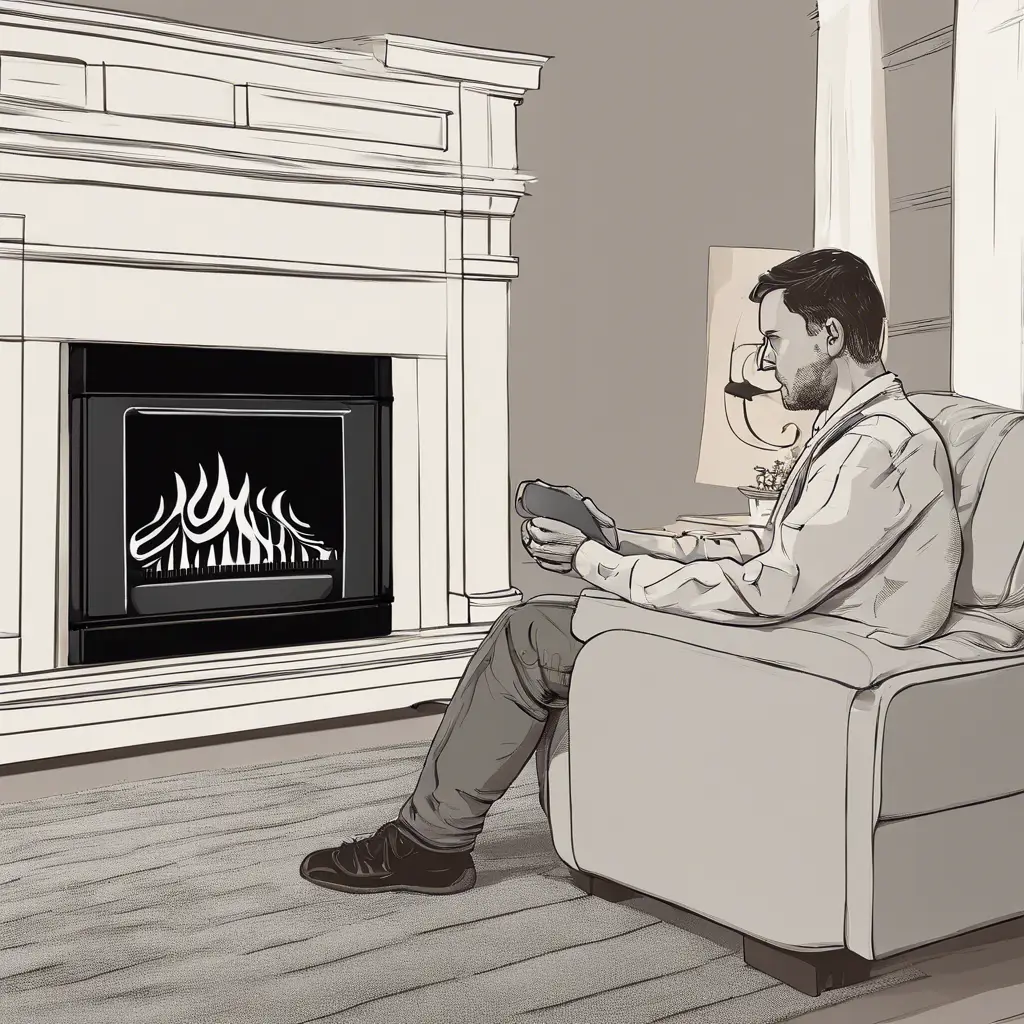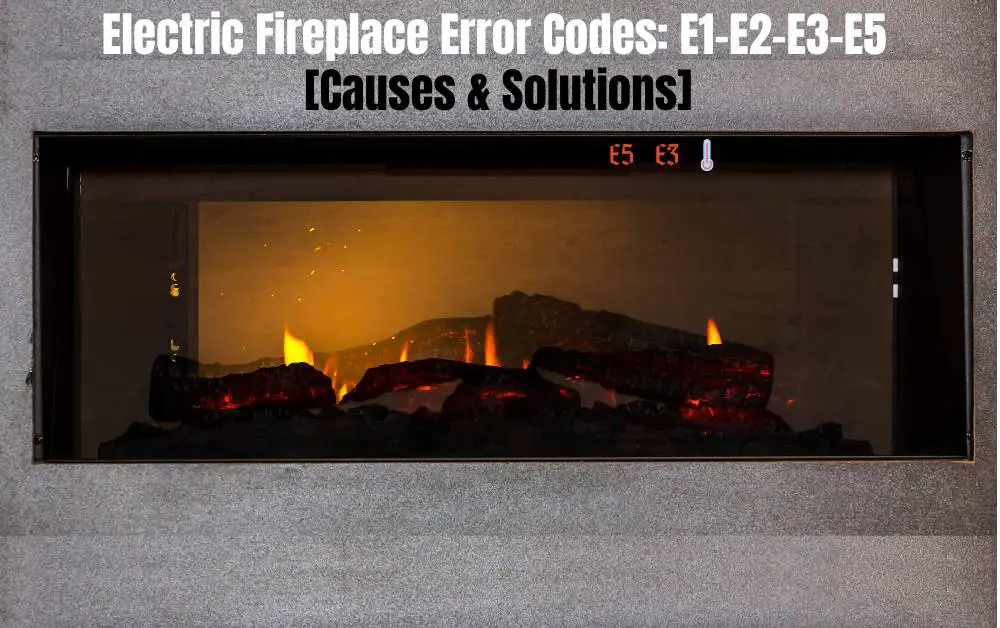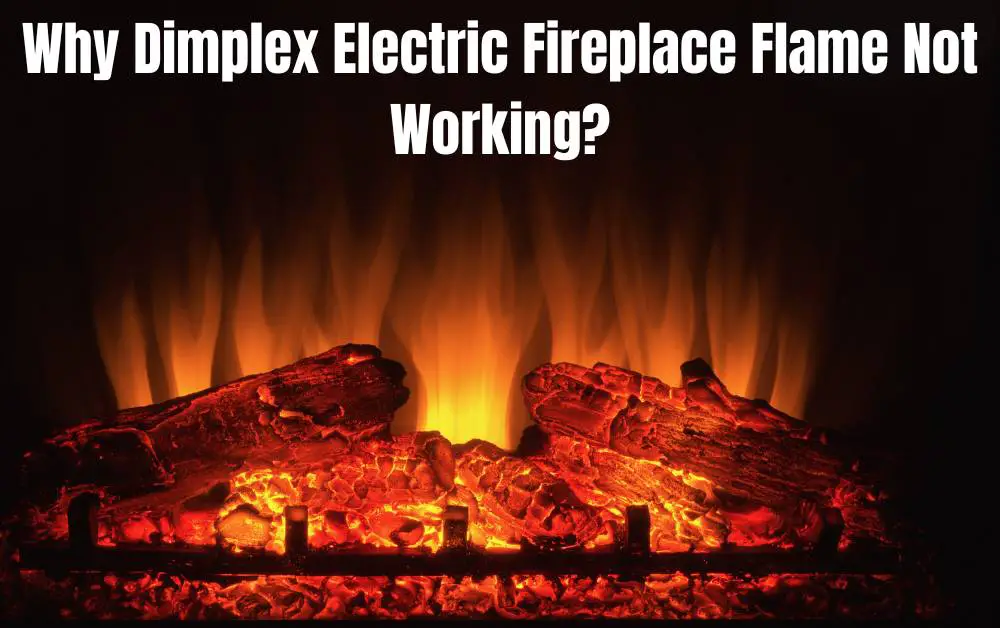If you’ve recently invested in an electric fireplace, you may have experienced a moment of confusion when you noticed it making noise. While these modern heating solutions are designed for comfort and convenience, electric fireplace making noise is a common concern among users.
Whether it’s a gentle humming noise, a crackling sound, or an unexpected clatter, understanding the reasons behind these noises can enhance your overall experience.
In this blog post, we’ll explore the various sounds your electric fireplace might produce, what they mean, and how to address any potential issues, ensuring that your cozy retreat remains a source of warmth and relaxation.
Why is My Electric Fireplace Making Noise?
If your electric fireplace is noisy, it could be due to several common issues.
Vibrating or rattling sounds in electric fireplace often arise from loose components, such as screws or bolts, which can be tightened to resolve the problem.
Buzzing or humming noises might indicate a defective flame speed control module, while a whirring sound could result from dust buildup on the blower fan or motor.
A grinding noise in your electric fireplace may suggest that a damaged flame rod is rubbing against other parts, and intermittent noises when heating could point to a failing blower motor.

9 Common Reasons for Noisy Electric Fireplace
1. Loose Parts
Electric fireplaces use several mechanical components that can come loose over time, resulting in rattling, clicking or clunking noises when the fireplace is turned on.

If electric fireplace making noise check for loose screws and bolts in the assembly and ensure that all parts are securely fastened together.
If a component appears worn out or damaged, it may need to be replaced.
2. Fan Motor Issue
If the fan or blower motor is not functioning properly, it could cause a buzzing or rattling noise when the fireplace is turned on.
Check for any blockages preventing the fan from spinning, and if necessary, replace the fan motor.
3. Internal Blower Issue
Some electric fireplaces have an internal blower fan that helps circulate air within the unit. If this blower is not operating properly, it can cause a loud noise when the fireplace is turned on.
Check for any blockages or obstructions in the blower and ensure that the blades are free of debris. If necessary, replace the internal blower with a new unit.
4. Wiring Issue
If there is an issue with the wiring in your electric fireplace, it could cause a buzzing or humming noise when you turn it on. Check all wires to ensure they are securely connected and ensure that there is no exposed wiring.
If the wiring appears in poor condition, it may need to be replaced.
5. Presence of Foreign Objects
When the fireplace is turned on, foreign objects can find their way into electric fireplaces, resulting in a loud noise, rattling or clanking noise and affect indoor air quality.
Check for any loose objects that might obstruct the fan or other components and remove them if necessary. This should help reduce the unusual noises from your electric fireplace.
6. Incorrect Installation
Unlike traditional fireplaces If your electric fireplace has been installed incorrectly, it could cause background noise rattling or clunking noises when you turn it on.
Check to ensure that all parts are securely fastened together, and if necessary, contact a professional to inspect the installation.
7. Faulty Components
If any components in your electric fireplace are faulty or worn out, it could cause a unusual noise when the fireplace is turned on. Check for signs of wear and tear and replace any malfunctioning parts with new ones.
8. Overheating
If your electric fireplace is overheating, heating element cause a loud humming or buzzing noise when the unit is turned on. Check the filters to ensure they are clean and free of obstructions and consider using a fan to help redistribute air within the unit.
You can also consider replacement heater assembly. If necessary, contact a professional for further assistance.
9. Excessive Vibration
If the electric fireplace is placed on an uneven surface, it can cause excessive vibration and result in a loud noise when the unit is turned on.
Check the area around the electric fireplace to ensure that it is securely supported, and if necessary, add additional padding or insulation to help reduce the vibration.
You May Also Like To Read:
How to Diagnose the Noise
Diagnosing the source of the noise is the first step toward resolving the issue. Start by carefully listening to the type and frequency of the noise.
Then, inspect the fireplace thoroughly to identify any visible signs of damage or wear. Pay attention to specific areas, such as the fan, heating elements, or internal mechanisms, as these are common culprits for noise problems.
How do I Stop my Electric Fireplace from Making Noise
By following these simple steps, you should be able to identify and fix any noisy issues with your electric fireplace and make it quitter:
- Clean the fireplace on schedule basis. Cleaning the fireplace regularly can help keep it running smoothly and quietly. Chech the fireplace maintenance tips.
- Check all screws, bolts, and other components to ensure they are tightened securely.
- Lubricate moving parts of your chimney over time, moving parts in the electric fireplace can become dry and produce a squeaking or grinding noise.
- Replace faulty components. Replacing the defective part can help reduce the noise.
- If the fan in the electric fireplace is making noise, it may need to be cleaned or replaced. If the fan blades are bent or damaged, it can also cause unwanted noise.
- If you cannot fix the issue on your own, it may be necessary to hire a professional to examine the electric fireplace and make the required repairs.
Remember, an electric fireplace should run quietly, so if you are experiencing a persistent or significant amount of noise, it is important to address the issue as soon as possible.
When to Seek Professional Help
While some electric fireplace noise issues can be addressed through DIY maintenance or troubleshooting, others may require professional intervention.
Signs indicating the need for professional help include persistent or worsening noises, electrical malfunctions, or visible damage to the fireplace.
Attempting to repair complex issues without proper expertise can pose safety risks and may further damage the unit.
Preventing Future Noise Issues
To minimize the likelihood of future noise problems, regular maintenance and proper usage are crucial. Keep the fireplace clean and free of dust and debris, as these can contribute to mechanical friction and airflow restrictions.
Follow manufacturer guidelines for operation and avoid overworking the unit, as excessive use can accelerate wear and tear.
Scheduling routine inspections by a qualified technician can catch potential issues early and prevent costly repairs down the line.
FAQ
Why electric fireplace flame motor making noise?
The flame motor in an electric fireplace can produce various noises due to loose components, defective parts like the flame speed control module, dust buildup, a damaged flame rod, or issues with the blower motor.
Why electric fireplace heater making noise?
Noises from an electric fireplace’s heating element are commonly caused by loose components like screws and bolts that rattle due to vibrations, dust accumulation on the blower fan leading to whirring sounds, a damaged flame rod rubbing against other parts creating grinding noises, or a faulty blower motor only making noise when the heating element is activated.
Why is my electric fireplace making noise when off?
There are a few potential causes for an electric fireplace making noise when it is off. It could be caused by an internal fan, by the heating elements cooling down, or even due to some sort of mechanical issue.
Affiliate Disclosure: Fireplaceadviser.com is a participant in the Amazon Services LLC Associates Program. We may earn a commission when you click on certain links on this site and purchase.

Hello!! I am Jamal Khan. I often fix my home electric heaters and gas stove problems and research the common issues in the heating units to improve my knowledge and expertise. The aim of establishing fireplaceadviser.com is to share my expertise and knowledge with my audience.













Hello Randy, we have provided information about the humming sound in the electric fireplace. If the problem still persists, please let us know.
Hi! I just purchased and put together an electric fire place tv stand and it has a loud humming sound when just the flame is turned on. I have tinnitus so it is very annoying to me. Please help with some good advice. Thank you!
I’m sorry to hear about the issue you’re experiencing with your electric fireplace TV stand. Here are some troubleshooting steps you can try to address the loud humming sound:
Ensure that the electric fireplace is placed on a level surface and that it’s not touching any walls or other objects that could cause vibrations and amplify the humming sound.
The fan inside the fireplace could cause a humming sound. Check if any obstructions are blocking the fan blades or if the fan needs cleaning. Sometimes, dust or debris can accumulate and cause the fan to produce noise.
Make sure all the electrical connections are secure and properly plugged in. Loose connections can sometimes result in humming noises.
Some electric fireplaces have adjustable flame settings. Try lowering the flame intensity to see if it reduces the humming sound.
If none of the above steps resolve the issue, it’s best to contact the manufacturer or retailer from whom you purchased the fireplace. They may be able to provide further assistance or offer a replacement if the unit is defective.
Since you mentioned having tinnitus, it’s understandable that the noise is particularly bothersome. One of these steps will help alleviate the issue. Let me know if you need further assistance!